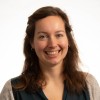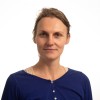Trying out ‘friluftsliv’ as therapy in Poland
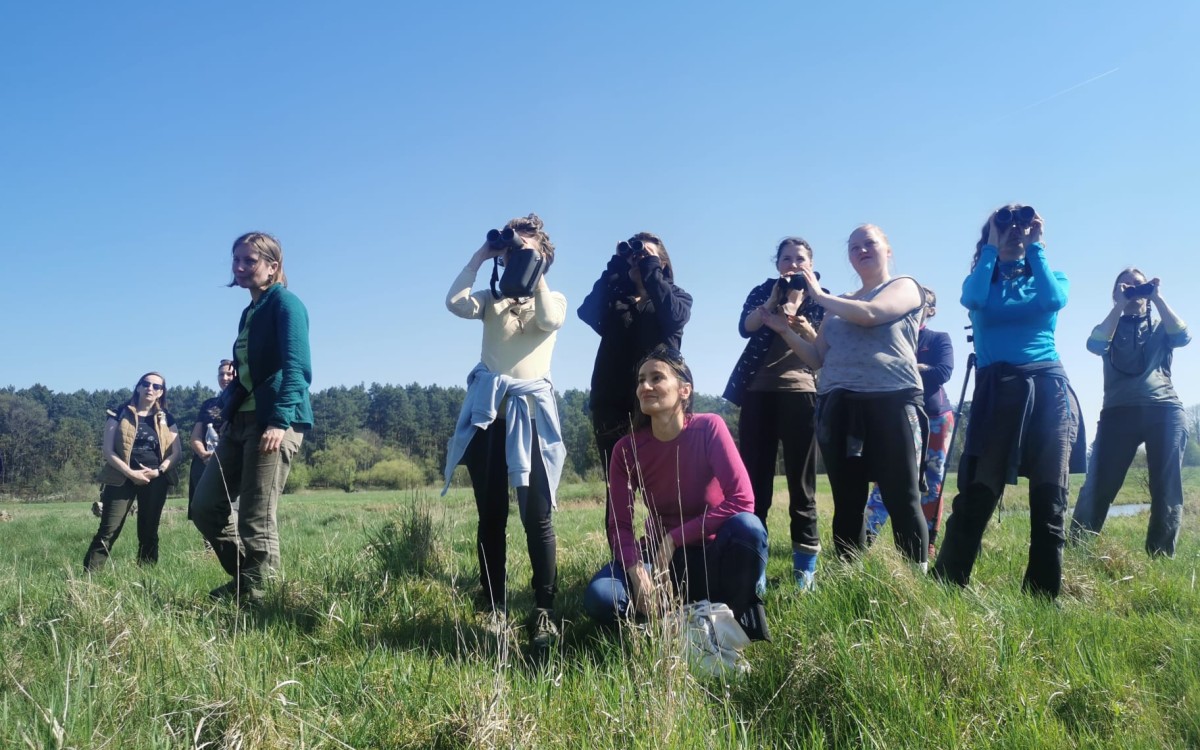
Can a couple of nights in a tent and around the campfire make a difference for people who are in a difficult life situation, struggling to cope with everyday life, or feeling lonely? A Polish organization is testing out Norwegian-inspired outdoor activities as a form of group therapy. They draw on insight from Vestlandsforsking about the Norwegian outdoor tradition, commonly referred to as 'friluftsliv'.
"I haven't felt this way in many years", said the Polish woman after a night in a hammock in the forest outside Warsaw.
"I believe everyone should try such a trip at least once in their life because so much opens up here. I get the chills just talking about it", said another.
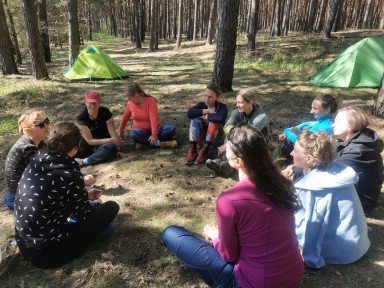
A total of eight women took part in the trip. They packed their backpacks, carried them to the campsite, cooked meals, and talked together, under the guidance of three instructors. Around the campfire, the women shared stories about everyday struggles, stressful lives, broken relationships, and career changes – the difficulties that motivated them to sign up for the trip.
"This is the first time I have opened up so much in a group. I shared a lot about myself, including difficult things," said one of the participants on the overnight trip.
Such emotional release is the very goal of the concept. The foundation testing it in Poland is the Center for Innovative Education (CIE) in Warsaw. The professional community at the center strongly believes in outdoor experiences as low-threshold therapy for people facing various difficulties. This particular trip targeted women in their 20s to 40s who were outside of education, employment, and training or had a desire to make a change in their lives.
The program doesn't differ much from a regular overnight trip, but this group had three facilitators, two of whom were psychologists. The facilitators planned the trip and facilitated good group and learning processes, including daily gatherings around the campfire and individual conversations with a designated facilitator each evening.
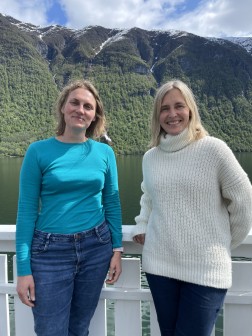
Lack of ‘friluftsliv’ culture
Also present to observe were two researchers from Vestlandsforsking (Western Norway Research Institute). Anna Maria Urbaniak-Brekke and Kristin Løseth have collaborated with the Polish professional community on outdoor learning through an EEA-funded research project over the past year. In March, they welcomed their project partners to Sogndal to provide them with an introduction to outdoor activities, both as a popular recreational activity, an academic discipline, and as a platform for working with vulnerable groups.
Anna Maria, who grew up in Poland and now lives in Norway, explains why such training was necessary:
"In Poland, people engage very little in what we consider to be common, low-threshold outdoor activities, called 'friluftsliv' in Norwegian. Few people in Poland engage in overnight stays or cooking outdoors."
Less structure in Norway
The Polish partner initially drew inspiration and experiences from Scotland, where outdoor group therapy, or 'outdoor learning', has been implemented for several years, taking inspiration from the so-called Edinburgh model. This model has a threefold goal for such trips: to develop a better relationship with oneself, the group, and nature. The schedule is quite tight, with a focus on accomplishing various tasks.
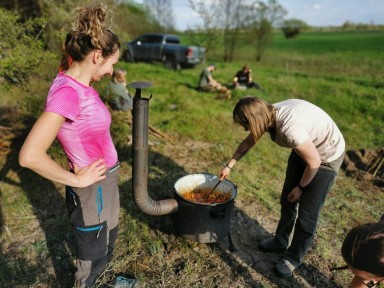
"In Norway, we introduced them to Trygg av Natur, a non-profit organization that specifically works with children and young people facing challenges," Kristin explains.
Trygg av Natur emphasizes trust and consideration for the group over rules, and encourages participants to be involved in decision-making and feel a sense of agency. In their approach, the facilitators take on a more withdrawn role.
Break from busy lives
The Polish facilitators reflected on their stay in Norway and chose to loosen up on the structure and allow for more agency on the part of the participants. This approach was well-received by the participants on the trip in Warsaw. One of the women expressed it as follows:
"What I liked the most was that there was no plan, that everything just happened on its own. For the first time in my life, I felt like I didn't have to do anything. I will carry this with me because it was one of the most important experiences for me. I wasn't aware of how much it weighed me down, but throughout my life, I have always felt obligated to do something or other."
"The women on the trip led very busy lives. That's why they saw the Norwegian approach, with less of a strict plan, as a positive. It was good for them to have fewer responsibilities," says Anna Maria.
Surprisingly significant impact
What surprised the researchers was how much the women who participated in the overnight trip gained from so little, right on the outskirts of a big city.
"We spent four days together. Several of the women had no experience with overnight camping, but they truly enjoyed it. The combination of enjoyable nature experiences, a group that made them feel safe, and the opportunity to reflect on their own challenges with a facilitator all did them good."
Now, the two researchers based in Sogndal will analyse the interviews they conducted with the women to extract more insights about the participants' experiences. Vestlandsforsking will also assist CIE in developing a curriculum for future facilitators who will be taking similar groups on therapeutic outdoor trips in Poland.
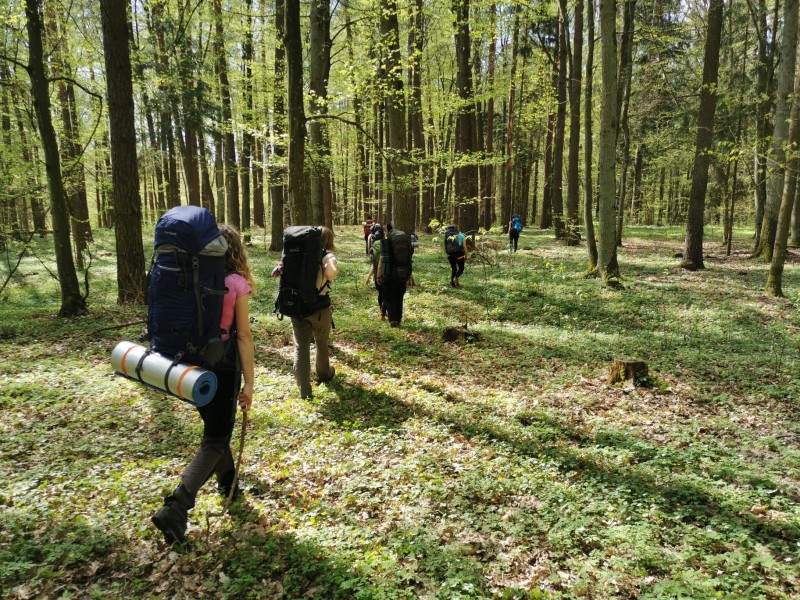
Supplement to the healthcare system under pressure
In Norway, outdoor activities have been used in various forms in therapy. It has been systematically utilized in contexts such as cancer patients, youth with eating disorders, patients in addiction and psychiatry, as well as an integration platform for youth and women with immigrant backgrounds. Recently, a professional book on the subject, "Outdoor Therapy - An Introduction," was published, summarizing the Norwegian experiences in this field. While this specific research project focuses on testing in Poland, the researchers are positive about more people in Norway utilizing nature experiences to improve people's lives.
"With a strained healthcare system and growing challenges related to mental health, we should be open to alternative forms of therapy that can enhance people's quality of life. In nature, one finds peace, and it is a good arena for forming strong connections with others," concludes Kristin Løseth.
